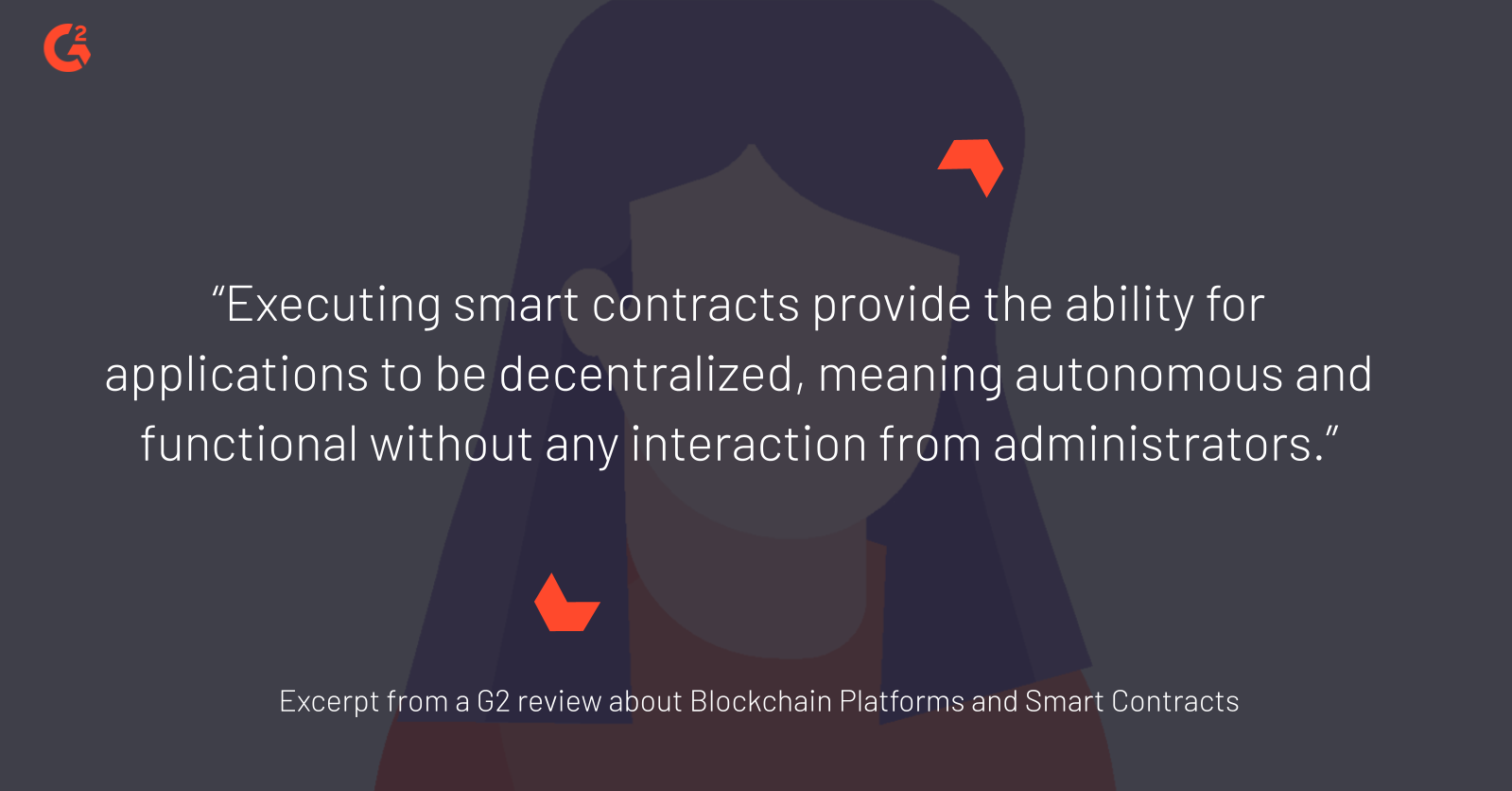In December 2020, I wrote an article discussing the growing popularity of blockchain software and predicted that this trend would continue to gain momentum in 2021, especially in the banking industry.
This prediction seems to coming true, and the popularity of blockchain is expanding more than ever into other industries, such as music, accounting, governments, and online marketplaces. Even though the technology is still relatively new and unknown to a lot of people, some companies and industries are investing in it because of its unique set of features.
Understanding blockchain technology
Before diving into blockchain’s growing popularity, here is a high-level review of what it is and what it can be used for.
What is Blockchain Technology?
Blockchain technology is a system for transactions that can’t be reversed or tampered with; it allows two parties to engage in secure digital transactions without a third party. It is an automated digital ledger that records every transaction that passes through a computer and broadcasts these transactions to an entire network of computers on a peer-to-peer system. If the transaction is identical on all systems, it’s verified as authentic. This adds another level of security because each transaction is verified several times and is extremely hard to tamper with or falsify.
The technology is called blockchain because each new transaction is added to a new “block” and that block is added to the system and attached to a chain of other blocks that make up a transaction.
 Steps involved in a transaction using blockchain (Source: G2.com)
Steps involved in a transaction using blockchain (Source: G2.com)
When blockchain was originally created in 2008, it was primarily used for cryptocurrency (or crypto) transactions. Today, it’s used in a wide array of industries, for several different purposes, including the ones below:
| Use cases of blockchain technology: |
- Accounting: For accounting purposes, blockchain technology assists in automating asset and ledger recordkeeping duties.
- Financial services: In the financial services industry, blockchain software is used for payment infrastructures, compliance and auditing, and credit scoring, to name a few.
- Smart contracts: Smart contracts are self-executing contracts based on agreed-upon terms between buyers and sellers that are written into code. The terms of the contract are irreversible, trackable, and therefore, don’t require a third party to moderate or carry out the transaction.
- Storage management: Blockchain helps in the storing and saving of data in a decentralized network that utilizes unused hard disk space of users across the world. This decentralized infrastructure is an alternative to cloud storage.
- Security: Blockchain software allows for transactions to be almost impossible to alter or falsify, and are validated many times over.
|
Since blockchain is being implemented across many industries, and for an abundance of use cases, we weren't surprised to see the average traffic to G2’s four blockchain categories (Blockchain Platforms, Blockchain Security, Blockchain Payments, and Blockchain as a Service) increase nearly 120% in the last three months—December 2020 to February 2021. Category traffic for these categories has increased from 1,044 page views to nearly 2,300 just three months later, with users also viewing more individual profiles and staying on each profile longer.
This highlights that the interest in this technology is increasing across all facets of blockchain, especially as this technology is better understood and more widely accepted.
Big banks pursuing blockchain technology
Is blockchain technology still gaining popularity amongst banks as I predicted in December 2020? In the article, 2021 trends in accounting and finance, I stated that “Companies, especially banks, will continue to pursue blockchain technology in 2021 as they seek shared trust driven by transparency.”
According to hackernoon and medium, who have been tracking the numbers of banks that are currently using, or plan on using blockchain technology, my answer would be yes.
Even though it’s too early to report exact numbers for 2021, the trend since 2018 is showing that the rate of adoption of blockchain technology is increasing vastly. This increase in popularity among banks is due to several factors, and in my opinion, the most important among them is that it’s fairly cheap (compared to fees associated with cross-border transactions and B2B payments) and secure.
Another important factor contributing to this booming popularity is the transparency of all transactions within the blockchain. For example, entries to ledgers cannot be erased or changed, allowing people to see all transactions that have taken place. It also builds audit trails around the exchange and movement of personal data between organizations and individuals which can help build trust between parties.
As companies and individuals better understand what blockchain technology is and how they can benefit from its capabilities, I believe there is no reason why this trend won’t continue in the future.
Accountants using blockchain for accuracy and transparency
With the ever-increasing volume of data, it must be easily available, secure, and usable. Accountants presumably manage some form of a general ledger (GL) that records their company’s financial transactions with a series of debits and credits. Traditionally, this requires a lot of human interaction by entering the data, reviewing it, or reporting it, which is not only time consuming but also opens the door to human errors.
Blockchain technology can replace GLs by automatically validating and recording transactions, which saves time and eliminates human errors since the accountant no longer has to review several documents that could be stored in several different locations. This software also gives transparency to clients because every transaction is verified and available in one place. When dealing with clients concerned about digital security and bookkeeping, or those who own some type of crypto, accountants need to understand this technology and be able to use it for recordkeeping and financial planning.
The accounting firm PricewaterhouseCoopers (PwC) may be the most involved and invested sizable accounting firm with regards to blockchain. They already have a program in place that trains thousands of employees in the use of blockchain and cryptocurrency and have also developed a validation and auditing solution for cryptocurrency. It seems that PwC is all in on the blockchain trend and is preparing their employees now to try and get a leg up on the competition in the future.
Even certified public accountants (CPAs) are beginning to use blockchain applications for secure recordkeeping, financial planning, tax audits, and tax returns. Since this technology authenticates all transactions and data for the CPA, they don’t have to waste time by reviewing their clients’ tax information for inaccuracies or discrepancies, and in case of an audit, all relevant information is in one place and format.
Using blockchain across other industries
As mentioned above, smart contracts are one of the most popular features of blockchain that can be used across almost any industry. A great example of software using smart contracts is MediaChain, which is a solution that shares media information (such as who owns a song's publishing rights) across applications and organizations. They use smart contracts to help musicians get paid for royalties by entering the artist into a decentralized, transparent contract that makes sure they get paid in full and on time. Audio streaming and media services provider Spotify was so intrigued by this software that they bought MediaChain back in 2017 to assist in connecting artists and other rights holders with the tracks hosted on their service.
G2 currently has 184 reviews across four blockchain categories, 10 of which highlight smart contracts, and have an average G2 score of 4.5 out of 5.
Reviewers have commented what they like best about smart contracts saying,
"I like its security and transparency. Data is very much secure with private keys, smart contracts are the backbone.”
They also mentioned what business problems they solved using smart contracts in blockchain and said,
“Executing smart contracts provide the ability for applications to be decentralized, meaning autonomous and functional without any interaction from administrators.”

Governments are also realizing the advantages of blockchain technology and are utilizing its capabilities to better serve their citizens. Right here in Illinois, where G2 is headquartered, the state government has created the Illinois Blockchain Initiative, which among other things, will be used to better protect and organize social security numbers, birth and death certificates, and voter registration cards of Illinoinians.
Another use of blockchain technology that has emerged, especially since the COVID-19 pandemic forced people to be at home longer, is websites using it to auction and sell digital items online, such as Mintable. This probably sounds similar to platforms like eBay, but the kicker here is that not only are all products digital (such as art, games, music, videos, and even domains), but they are added to a blockchain and paid for using crypto. Apps like these use smart contracts by letting the seller fill in the details about the item that automatically creates the contract. There is little to no risk with transactions because the contracts are only carried out when all terms are met, there is 100% verifiable proof of who the sellers and buyers are, and files can only be accessed and downloaded by the buyer.
Even the owner of the Dallas Mavericks, Mark Cuban, is becoming a firm believer in blockchain and what it’s capable of. In February 2021 in an interview with Raoul Pal, the founder and CEO of Real Vision, Cuban said, “It’s like the early days of the internet–brand new, no one really knows what it’s going to be. [There’s] a lot of projections.” He continued to say that if you don’t understand blockchain, “it’s going to smack you down and make you bleed.” He refers to the radical change in the ability to earn money digitally as “America 2.0”.
Only time can tell if these predictions will become a reality, but the fact is that blockchain is here to stay.



 by Nathan Calabrese
by Nathan Calabrese
 by Nathan Calabrese
by Nathan Calabrese
 by Nathan Calabrese
by Nathan Calabrese